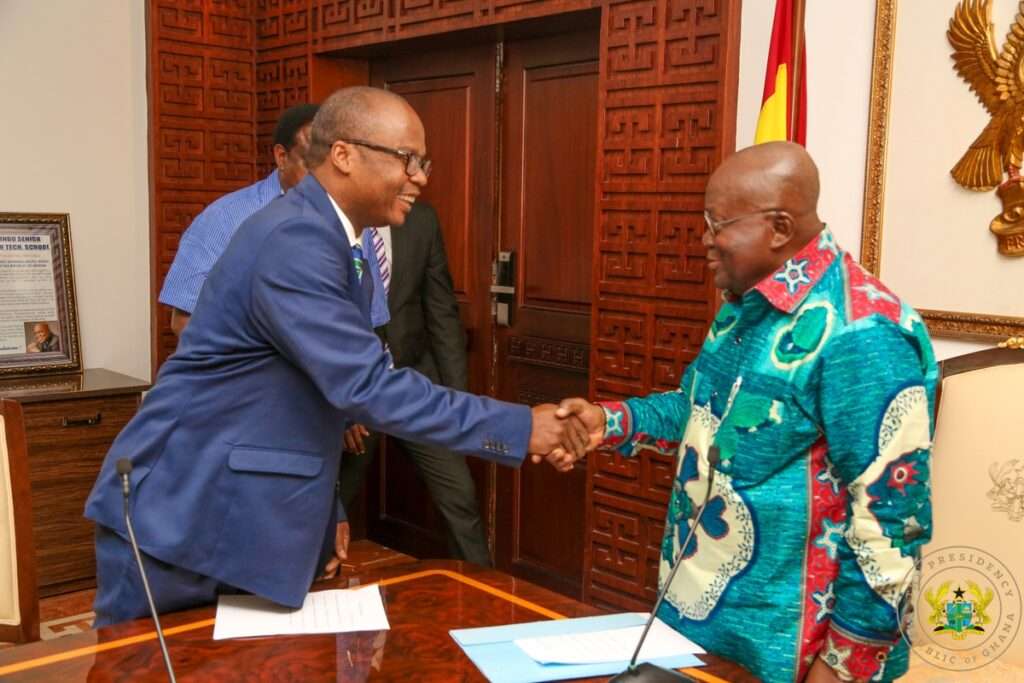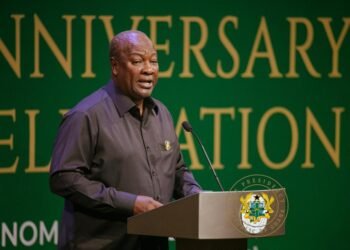The Government of Ghana appears to be taking advantage of the Central Bank of Ghana’s well-known historic role as the “Lender of Last Resort” to banks and the government, through monetary financing.
The Central bank, through its monetary financing, creates money and makes contributions to financing government expenditure, whether directly from the central bank to government, or indirectly, in that the central bank purchases government bonds on the open market.
The Government access funds from the Bank of Ghana only after it has exhausted all other options of borrowing, including international market borrowing.
However, the BoG appears to be handing the government excessive amounts of money, which will ultimately have a detrimental effect on the entire nation in the future.
As a result, the IMF in its Conditionalities (Prior Action 4) called for the signing of a Memorandum of Understanding (MoU) between the BoG and the Ministry of Finance to eliminate Central bank financing. This move might bring a lot of implications should Bank of Ghana refuse to fund the government of Ghana as it goes through economic hurdles.
The total shift from monetary financing and the emergence of new sources of funding for the government might create uncertainty in the financial and economic environment. This is because changes in borrowing practices may impact interest rates, credit availability, and the state of the economy as a whole. These uncertainties may provide difficulties for firms, investment choices, and general economic expansion, thereby harming employment prospects and living standards for residents.
Not limited to that, getting rid of Central Bank financing will require the government of Ghana to look out for other sources of financing, such as domestic and international markets. Government spending priorities and allocations may be affected by the availability and conditions of these sources. Public spending patterns may alter, which would have an impact on how basic services are provided and how infrastructure is built, and in the long run affecting the standard of lives of the citizens.

More so, the elimination from monetary financing may require the government to undertake short-term changes to its fiscal and monetary policies. Such adjustments may have an impact on borrowing costs, investment choices, and general financial stability, which may affect both people, businesses and corporations operating in the country.
Putting in measures to ensure independence of the central bank by reducing fiscal dominance is a good means of ensuring BoG operates without interference, however, the process of coordinating monetary policy may present difficulties and potential conflicts of interest. The ability of the central bank to efficiently administer monetary policy may be hampered which may have an impact on the general stability of the economy and public confidence in the financial system.
Furthermore, total shift away from monetary financing may force the government to depend more on foreign borrowing or domestic debt markets. Depending on the terms and conditions of these financing sources, there may be implications for the country’s debt burden and debt service obligations. Higher debt levels may limit government resources and the ability to make investments and social programs that directly benefit individuals.
BoG, Government Urged To Take Effective Measures In The Elimination of Monetary Financing
Central bank financing has been a political issue, with Hon. Cassiel Ato Forson, an opposition MP in Ghana’s evenly split parliament, alleging last year that the central bank printed 22bn cedis ($1.9bn) to fund the budget without parliamentary approval. However, the central bank denied the allegation.

The IMF in its conditionalities imposed a prior action on Ghana that calls for the Bank of Ghana and the Ministry of Finance to sign a Memorandum of Understanding (MoU). This condition aims to eliminate the practice of monetary financing of the Central Government.
According to IMF’s information, Ghana was in a scenario where the central government relied on monetary funding, or direct borrowing from the central bank. The economy, it stated, may suffer as a result of this behavior, which may also erode the independence of the central bank and increase inflationary pressures
Nonetheless, it is important for Ghana to carefully handle the shift away from monetary financing, reduce short-term disruptions, and make sure that fiscal and monetary policies are coordinated effectively.
To limit any negative effects on citizens and encourage sustainable economic development, it will be crucial to put policies into place that maintain price stability, boost investor confidence, protect the delivery of critical services and promote sustainable economic development.
Read also: IMF Deal Faces Imminent Danger Due to Over Reliance on Taxes for Revenue- IFS





















